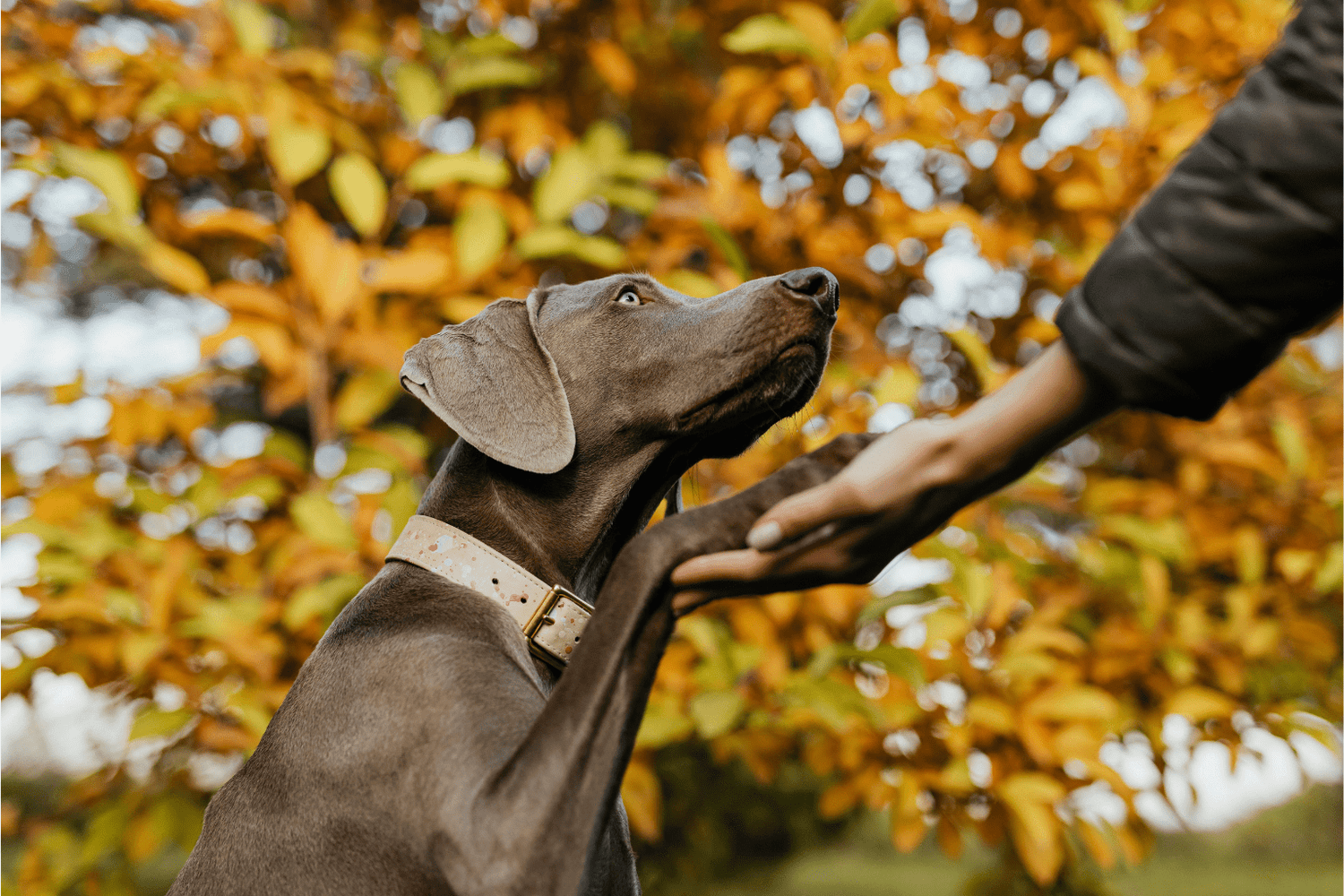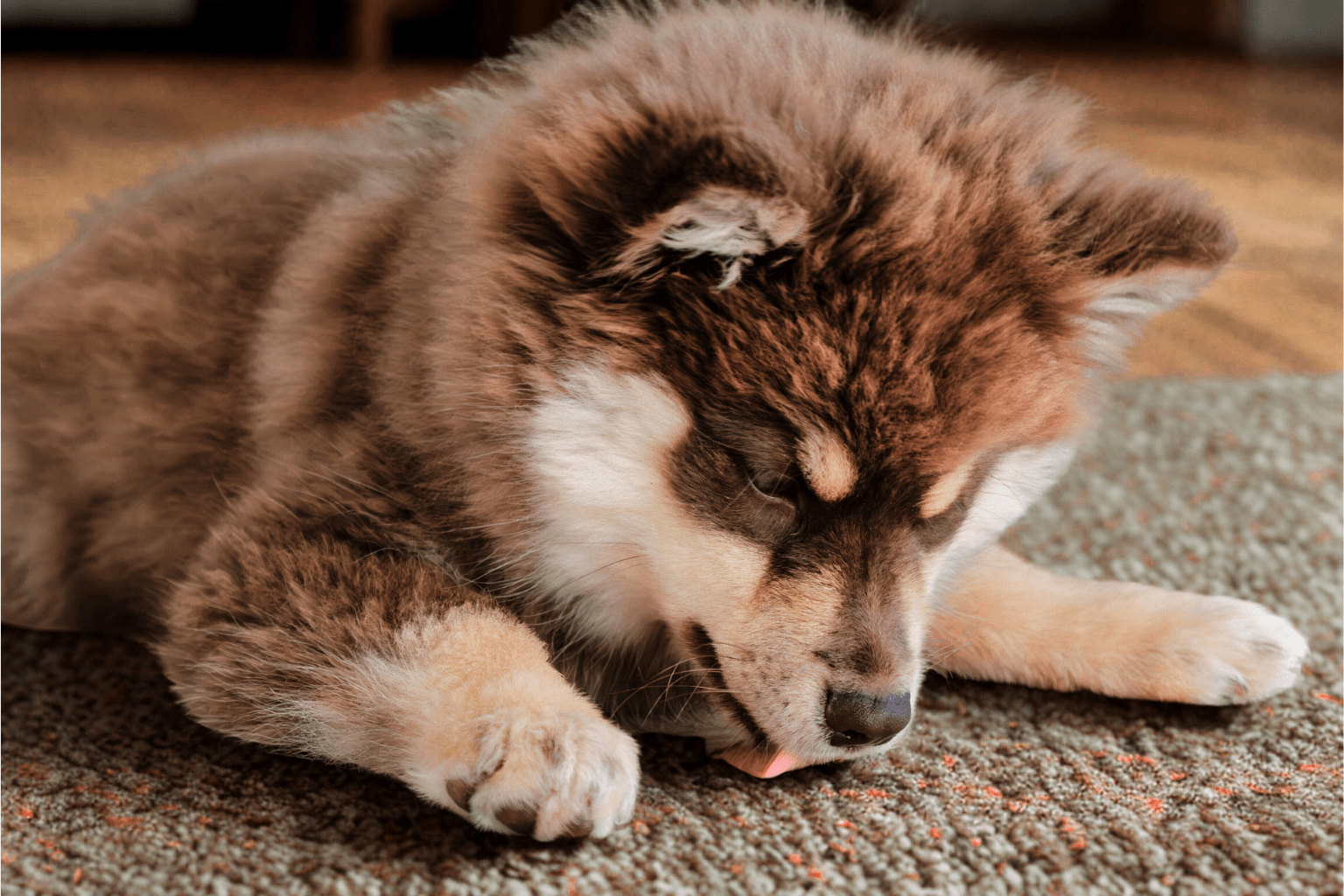Key Takeaways
- Senior dogs can learn new tricks effectively with the right training approach.
- Patience, shorter sessions, and motivating rewards are essential when training older dogs.
- Training strengthens the bond between you and your senior dog.
- Consistent training improves the safety of your older dog.
- Engaging training keeps an older dog's mind sharp and active.
Table of Contents
- Why Train Old Dogs? Unlocking New Joys in Every Season of Life
- The Heart of the Matter: Why Older Dogs Thrive with Training
- Getting Started, Practical Steps for Training Old Dogs
- Challenges Unique to Senior Dog Training, And How To Overcome Them
- Natural Support for Training: Whole-Dog Wellness, the BestLife4Pets Way
- Training Techniques That Work Wonders for Old Dogs
- Next Steps, Nurturing Every Chapter, Together
- Course Corrections, Answering Common Questions & Training Troubles
Training Old Dogs: Nurture Their Wisdom, Ignite Their Joy
Why Train Old Dogs? Unlocking New Joys in Every Season of Life
The myth that older dogs can't learn new behaviors has been thoroughly debunked by veterinary behaviorists. Dogs maintain neuroplasticity, their brain's ability to form new connections, well into their senior years. In fact, training old dogs often proves more rewarding than puppy training because mature dogs bring focus and life experience to each session.
Senior dog adoptions have surged 25% in recent years, with families discovering the unique joy of welcoming a wise, grateful companion. These dogs often arrive knowing basic manners but benefit enormously from refresher training that builds confidence in their new environment. Bailey, an 11-year-old rescue mix, learned her new family's routine and even mastered "find the treats" games within just two weeks of adoption.
For older dogs who may be experiencing joint discomfort or mobility issues, WALK-EASY® Hip & Joint Pain Relief can help support their comfort during training. Additionally, if your senior dog seems anxious or unsettled in new routines, consider Pet Relax Dog Calming Anxiety Relief to help them feel more at ease as they learn.
Old Dog, New Wins
- Mental stimulation - Keeps cognitive decline at bay
- Safety skills - Recall and "wait" commands protect aging bodies
- Bonding time - Shared learning deepens your connection
- Confidence boost - Success builds self-assurance in nervous rescues
The Heart of the Matter: Why Older Dogs Thrive with Training

Research from the University of Vienna shows that mental enrichment through training significantly slows cognitive decline in senior dogs. Just like crossword puzzles for humans, dog training for older dogs creates new neural pathways that keep minds sharp and engaged.
The focused attention during training sessions makes older dogs feel valued and purposeful. Unlike the chaos of puppyhood, senior dogs appreciate the calm structure of learning time. This one-on-one attention often becomes the highlight of their day, strengthening the human-animal bond in profound ways.
For dogs who may be struggling with skin irritation or allergies that distract from learning, providing Dog Allergy Relief & Immune Support can help them stay comfortable and focused during training sessions.
Safety Matters, No Matter Age
Which behaviors most improve an old dog's safety? Four commands stand out: "wait" prevents rushing through doorways on unsteady legs, "come" ensures reliable recall if hearing is declining, "drop it" protects from harmful items, and "settle" provides a calm default behavior during stressful moments.
Getting Started, Practical Steps for Training Old Dogs
Begin by observing your dog's current abilities and energy patterns. Most seniors learn best during their naturally alert times, often mid-morning after breakfast and evening before dinner. Keep a simple log for three days noting when your dog seems most engaged and responsive.
Adapt your approach with extra patience and gentleness. Training older dogs requires the same positive reinforcement as puppy training, but with modifications for physical comfort. Use soft, easily digestible treats, allow extra time for processing commands, and always train in a comfortable space with non-slip surfaces.
Establish consistent daily routines that include short 5-10 minute training sessions. Seniors thrive on predictability, feeding at the same times, regular potty breaks, and brief learning moments woven throughout the day. End each session on a successful note, even if it's just sitting for a treat. For more tips on using rewards effectively, see training dogs with treats.
Challenges Unique to Senior Dog Training, And How To Overcome Them
Physical limitations require creative adaptations, not training abandonment. Dogs with arthritis benefit from training sessions on soft surfaces with commands that don't require jumping or quick position changes. For dogs with hearing loss, switch to clear hand signals and gentle touch cues. Vision-impaired dogs excel with verbal commands paired with consistent scent markers.
Motivation strategies differ for older dogs who may be less food-driven than puppies. Rotate between soft treats, gentle praise, favorite toys, and even simple petting as rewards. Some seniors respond beautifully to puzzle toys that make them "work" for rewards at their own pace.
If your senior dog is recovering from joint surgery or experiencing hip discomfort, you may find these hip and joint surgery after care tips for dogs and cats helpful for adapting your training routine.
Memory Support Strategies
- Break complex behaviors into smaller steps
- Practice the same command in different locations
- Use consistent verbal cues and hand signals
- Celebrate small wins to build confidence
Natural Support for Training: Whole-Dog Wellness, the BestLife4Pets Way

Comfortable, calm dogs learn more readily than those dealing with physical discomfort or anxiety. Signs your senior might benefit from additional support include stiffness after rest, reluctance to engage in activities they once enjoyed, or seeming "on edge" during training sessions.
At BestLife4Pets, we understand that training adult dogs works best when the whole dog feels supported. Our gentle, tasteless pellets integrate seamlessly into training routines, potentially helping ease the physical and emotional challenges that can interfere with learning. These natural remedies support your dog's own healing abilities rather than masking symptoms.
Real pet parents share inspiring stories of progress. Like Max, a 13-year-old Golden Retriever who rediscovered his enthusiasm for learning after his family addressed his comfort needs naturally. "He went from reluctant to participate to actually seeking out our training time," his mom shared. Your success story could be next, our community celebrates every victory, big and small.
If your senior dog is experiencing vision changes that impact their training, consider supporting their eye health with the Dog Eye Care & Eye Infection Treatment.
These products are not intended to diagnose, treat, cure, or prevent any disease. Always consult with your veterinarian before starting any new supplement regimen.
Training Techniques That Work Wonders for Old Dogs
The beauty of training older dogs lies in their wisdom, they understand routine, crave connection, and respond beautifully to patient, positive methods. Unlike puppies who bounce between distractions, senior dogs bring focus and gratitude to every session.
If your dog is struggling with dental issues that make treats less appealing, supporting their oral health with the Dog Bad Breath & Dental Care Solution can help make training more enjoyable for both of you.
Positive Reinforcement, Your Secret Weapon
Reward-based training transforms stubborn seniors into eager students. When your dog sits on command, immediately offer gentle praise, a soft treat, or their favorite ear scratch. This creates a positive association that makes them want to repeat the behavior.
Three reward types that work best: Verbal praise in a calm, happy voice; small, easily digestible treats; and brief play sessions with a favorite toy. Never use punishment-based methods, senior dogs have sensitive spirits and learn far better through encouragement than correction.
Leash Walking & Mobility, Training for Safe Strolls
Many older dogs need leash refreshers, especially rescues adjusting to new homes. Start indoors with a properly fitted harness, never a collar that strains their neck. Practice the "let's go" command in your hallway before venturing outside.
If your dog zigzags due to vision or hearing changes, use consistent verbal cues and gentle leash guidance. Walk at their pace, allowing frequent sniff breaks that provide mental stimulation without physical strain. For more ideas on keeping your senior active indoors, check out how to exercise dogs indoors.
House Manners Refresher
Senior dogs sometimes forget bathroom routines due to medical changes or new environments. Re-establish clear zones by taking them to the designated spot every 2-3 hours, using a consistent phrase like "go potty."
Realistic Timeline: Most older dogs relearn bathroom habits within 1-2 weeks with consistent routine and patience.
Celebrate every success immediately, the moment they finish in the right spot, offer enthusiastic praise. Accidents happen; clean thoroughly with enzymatic cleaner and simply redirect to the proper area next time.
Introducing New Tricks, Because Play Knows No Age
Four senior-friendly tricks to try: "Shake" or paw targeting (great for gentle joint movement); "Find it" games using treats hidden in easy spots; nose touches to your hand; and "place" training where they go to their special mat or bed.
Keep sessions under 10 minutes and always end on a successful note. If your dog masters "shake" but struggles with "find it," finish with another shake command so they feel accomplished.
Next Steps, Nurturing Every Chapter, Together
You're never behind when it comes to training old dogs, every age brings the perfect opportunity to deepen your bond and create new joys together. Whether your senior is learning their first "sit" or polishing forgotten skills, patience and consistency will guide you both toward success.
Training means hope, health, and happiness for your entire family. Your older dog brings wisdom, gratitude, and focused attention that makes every small victory feel monumental. Ready to train, support, and celebrate your best life together? Our gentle, natural remedies can help ease the bumps along the way, and our community is here to cheer you on.
If your senior dog is experiencing skin or coat issues that interfere with training, the Dog Healthy Skin & Coat + Fur Regrowth can help restore their comfort and confidence.
Course Corrections, Answering Common Questions & Training Troubles

Even the most dedicated pet parents hit bumps when training older dogs. These common concerns have straightforward solutions that honor your dog's pace and capabilities.
Is my dog too old or set in their ways? Absolutely not. Dogs retain learning ability throughout their lives. The key is adjusting your approach, not your expectations. A 12-year-old might need more repetition than a puppy, but they often show deeper focus and gratitude for your attention.
What's the ideal training session length? Keep sessions between 5-10 minutes for seniors. Their attention spans may be shorter, but their desire to please runs deep. Multiple short sessions throughout the day work better than one long training marathon.
My dog "forgot" commands they knew as a puppy. What happened? Memory gaps are normal, especially if commands haven't been practiced recently. Start from the beginning with patience and positive reinforcement. Most dogs relearn familiar commands faster than learning them initially.
When to Seek Professional Help
Contact your vet if you notice unusual fatigue, limping, sudden confusion, or dramatic personality changes during training. These could signal underlying health issues that need attention before continuing with training.
Consider a professional trainer if your dog shows persistent fear, aggression, or if you feel overwhelmed. Look for trainers experienced with senior dogs who use positive reinforcement methods.
Still stumped? Our Care Team loves solving training puzzles! DM us or join our monthly Pet Parent Training Chat for personalized guidance and community support. For more insight into the special bond between people and their pets, read are dogs more than just pets.
Not a substitute for professional veterinary advice.
Frequently Asked Questions
How can training benefit the cognitive health and overall well-being of senior dogs?
Training provides mental stimulation that helps keep senior dogs' minds sharp by encouraging new neural connections. It also boosts their confidence and strengthens your bond, contributing to their overall happiness and quality of life.
What are the most effective training techniques and approaches for older dogs with mobility or anxiety issues?
Use gentle, patient methods with shorter sessions tailored to your dog's pace. Incorporate motivating rewards and calming support to ease anxiety, while adapting exercises to accommodate mobility limitations for a stress-free experience.
Which commands are essential to improve the safety of senior dogs during daily activities?
Commands like recall, "wait," and "stay" are key for keeping senior dogs safe by helping them respond promptly to your cues and avoid hazards. These skills support better control and reduce risks during walks and around the home.
How can owners support their senior dogs' comfort and focus during training sessions?
Prioritize comfort by choosing low-impact activities and providing natural support for joint health and relaxation. Keep sessions short and consistent, using positive reinforcement to maintain your dog's interest and reduce stress.



